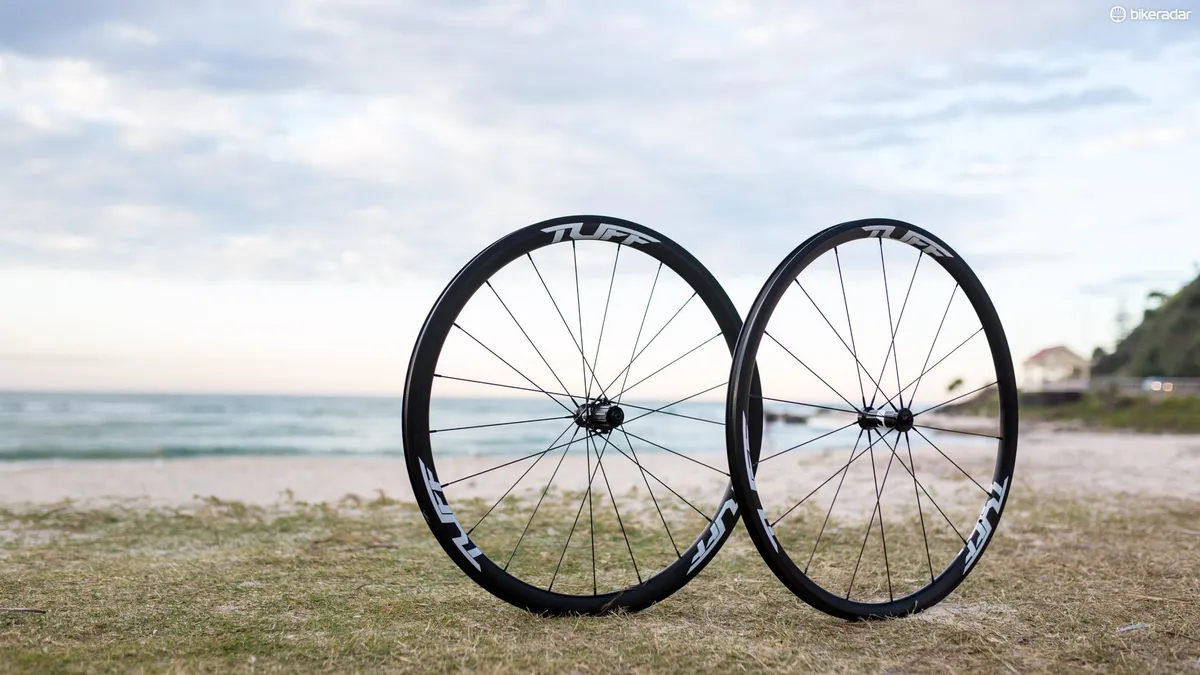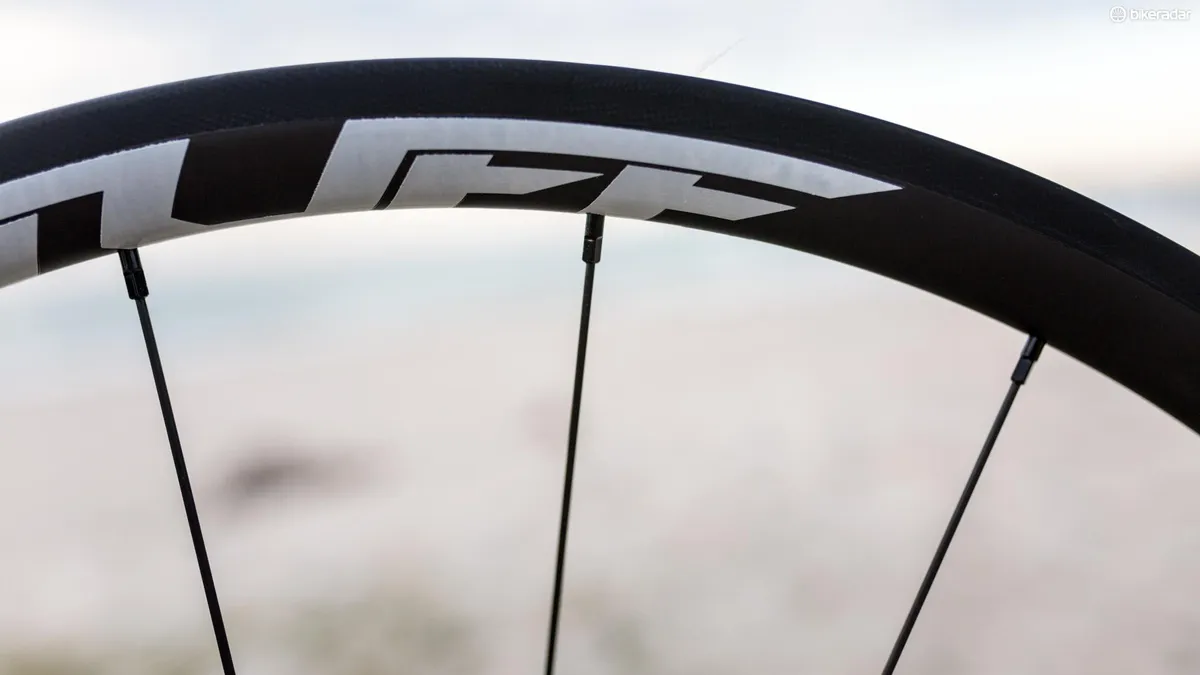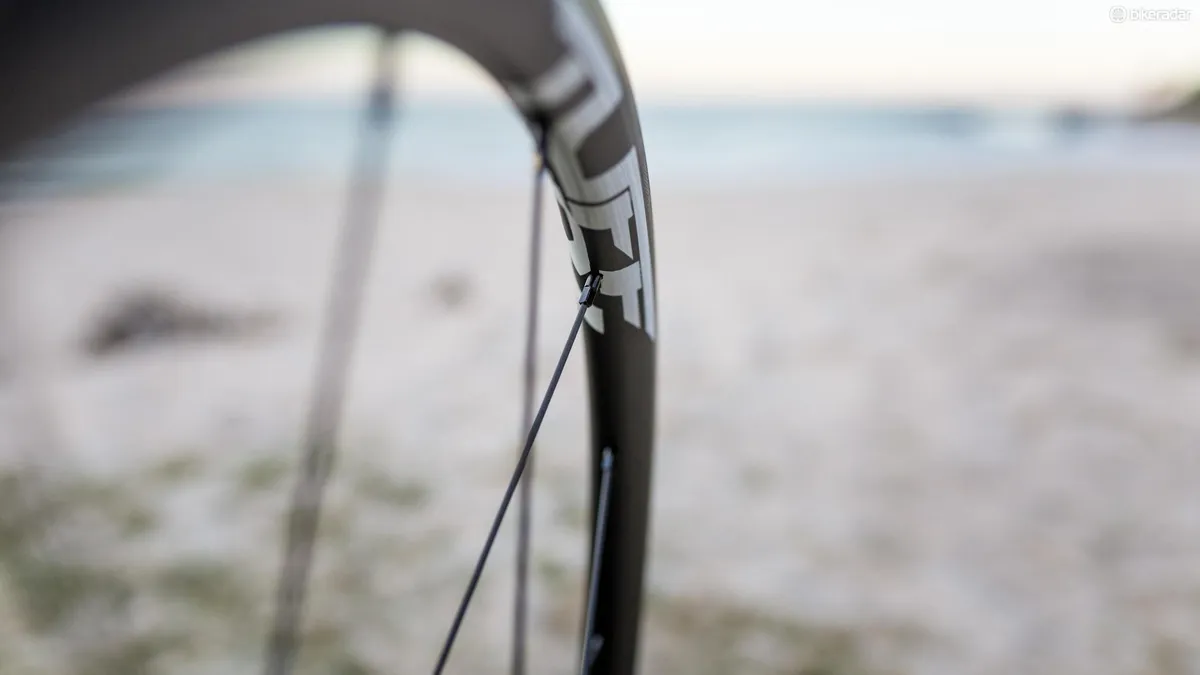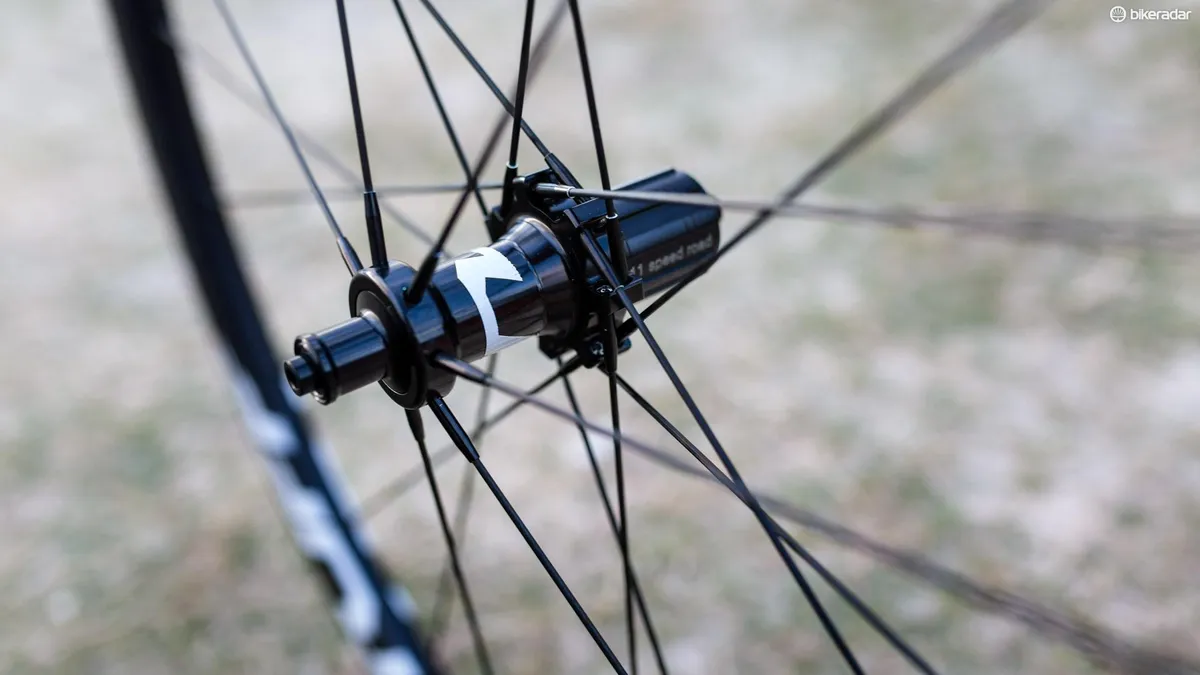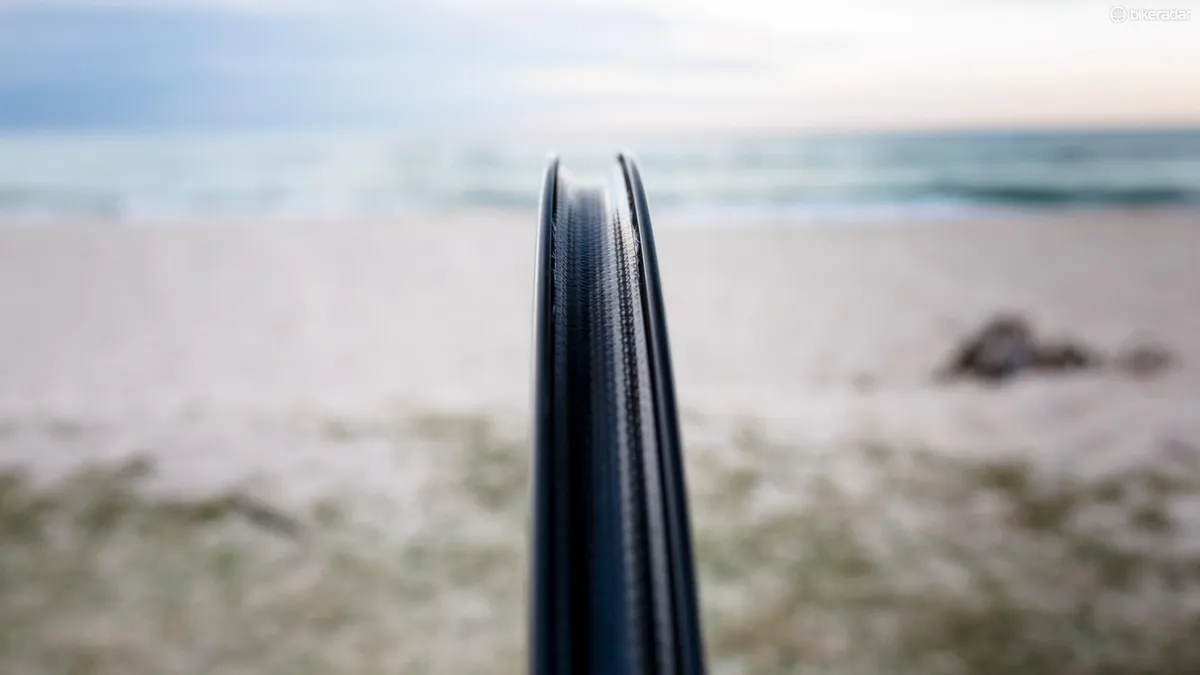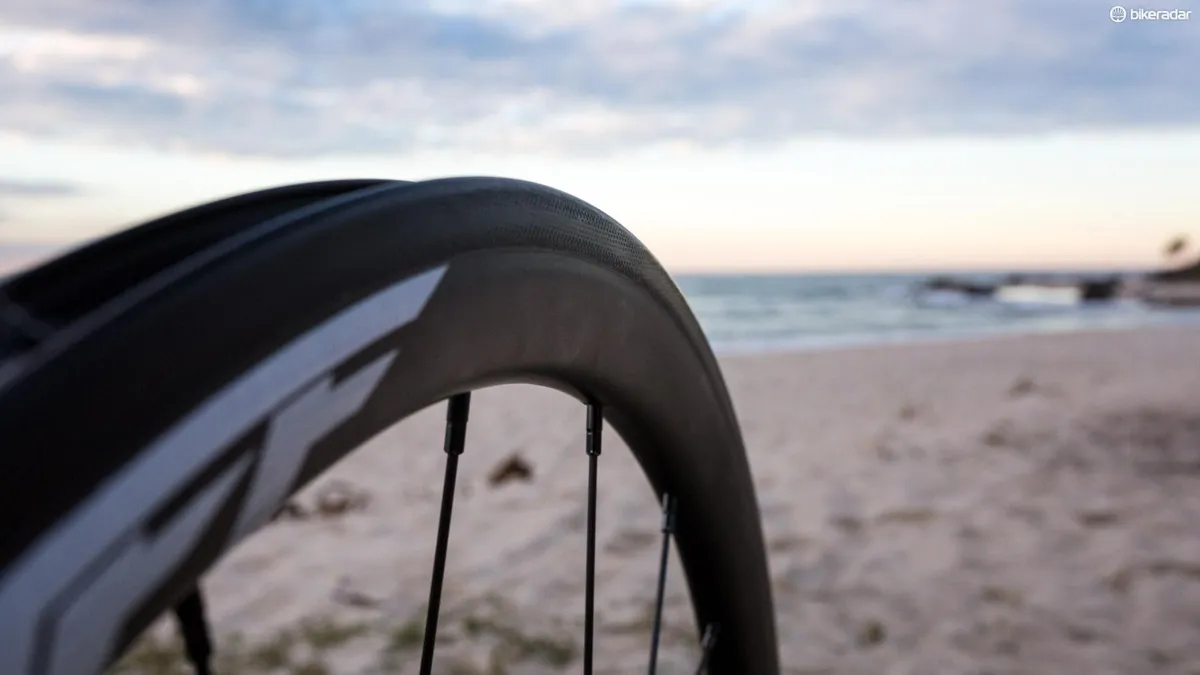Tuff is a new wheel brand hailing from Melbourne that's touting some almost-too-light-to-be-true carbon clinchers, and unique carbon spokes.
- Best road wheels – our top picks
- 10 of the best deep aero wheels lab tested
- Fulcrum Speed 40 clincher review
We’ve just got our hands on a set of Tuff's Exo 30-38 clinchers, which are claimed to weigh just 1,260g.
Highlights
- Carbon Matrix Spokes
- Proprietary hub
- 18.5mm internal rim width
- 30mm/38mm deep
- Tubeless ready
- Actual weight 1310g with rim strips
- £1460 / $1850 / AU$2050
As you can imagine when dealing with claims like this, the first thing we did when the wheels arrived was weigh them, and by our scale the Exo clinchers came in at 580g for the front and 730g for the rear, making for a grand total of 1,310g — 50g over the claimed weight, but still pretty damn close.
Tuff makes quite a big deal about the weight of their wheels, and when I asked the firm's technical director Phillip Paton about the discrepancy he asked if I'd weighed them with the rim strips. These rims are tubeless ready, and with the rim strips removed equated to 40g per wheel bringing us to a grand total of 1,230g. That said, to set them up tubeless you’ll need Stan's tape and valves, which will, of course, add back at least that much weight.
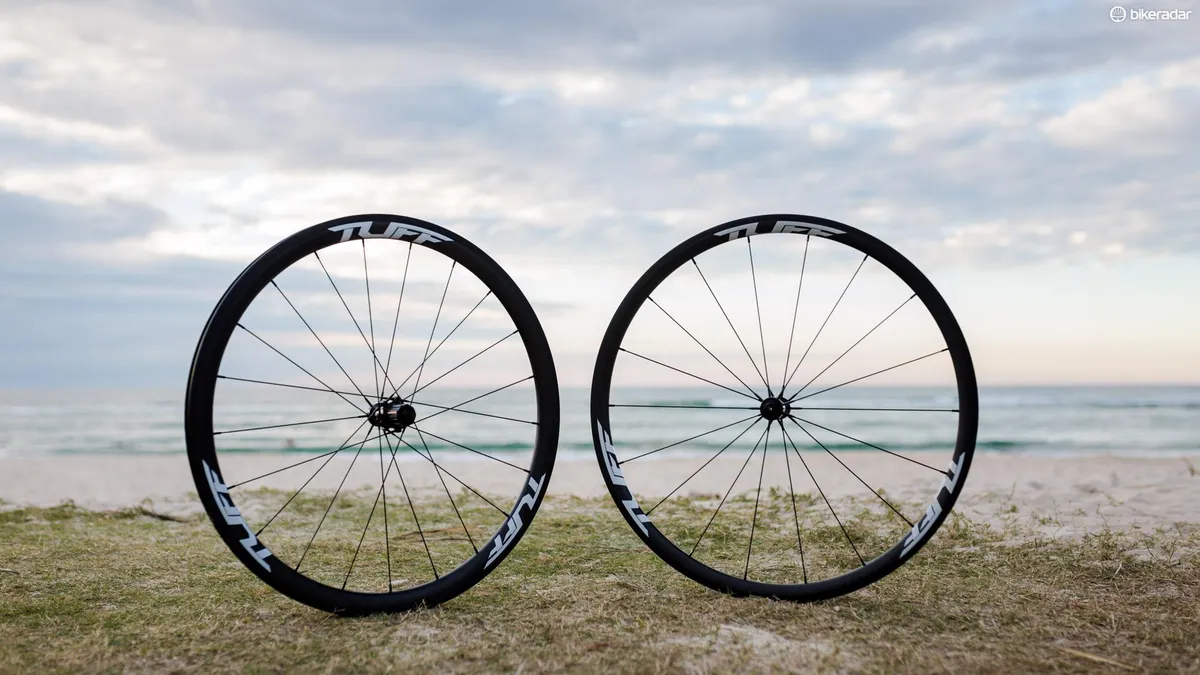
Even being slightly over the claimed weight with the standard rim strips, that makes the Tuff Exo clinchers lighter than Campagnolo's Bora Ultra 35 (1370g), Mavic’s Ksyrium Pro Carbon SL C carbon clincher (1,390g), and Zipp’s 202 NSW (1,375g). What’s more, priced at £1,460 / $1,850 / AU$2,050 for the set, including skewers, valve extenders and brake pads, they cost about the same as what a front wheel from the wheelsets above would set you back.
The rims themselves are based on an open-mould design, but Paton tells us Tuff has used a proprietary layup to keep the weight of the rotating mass low.
With an 18.5mm internal width, they’re very much on-trend and have a 'business in the front party in the back' configuration, with the front wheel measuring 30mm deep and the rear 38mm deep. Both wheels see a toroidal rim shape and, given the low profile, we can’t imagine side winds will present much of an issue.
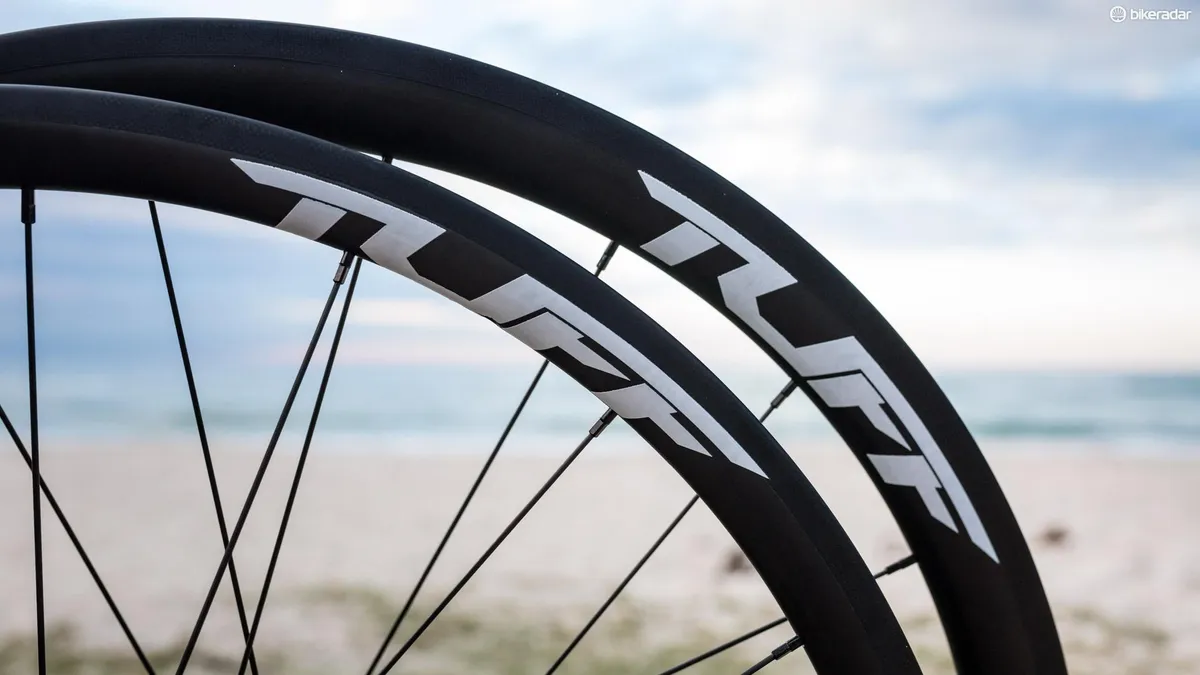
Who needs steel when you've got carbon?
It’s the tensioned Carbon Matrix Spokes, however, that intrigued us from the start. For those keeping score at home, carbon spokes aren't exactly an innovation – Mavic has been using them on its R-Sys wheelset since they were launched, and even Sapim released a CX Carbon spoke in 2015, though it never caught on.
"The key difference here is Mavic’s spokes are 6mm hollow carbon tubes which are not tensioned and work off of compression instead," Paton told BikeRadar. "Our Carbon Matrix spokes, on the other hand, are 2mm and tensioned like a normal spoke. They weigh about half what a standard steel spoke does."
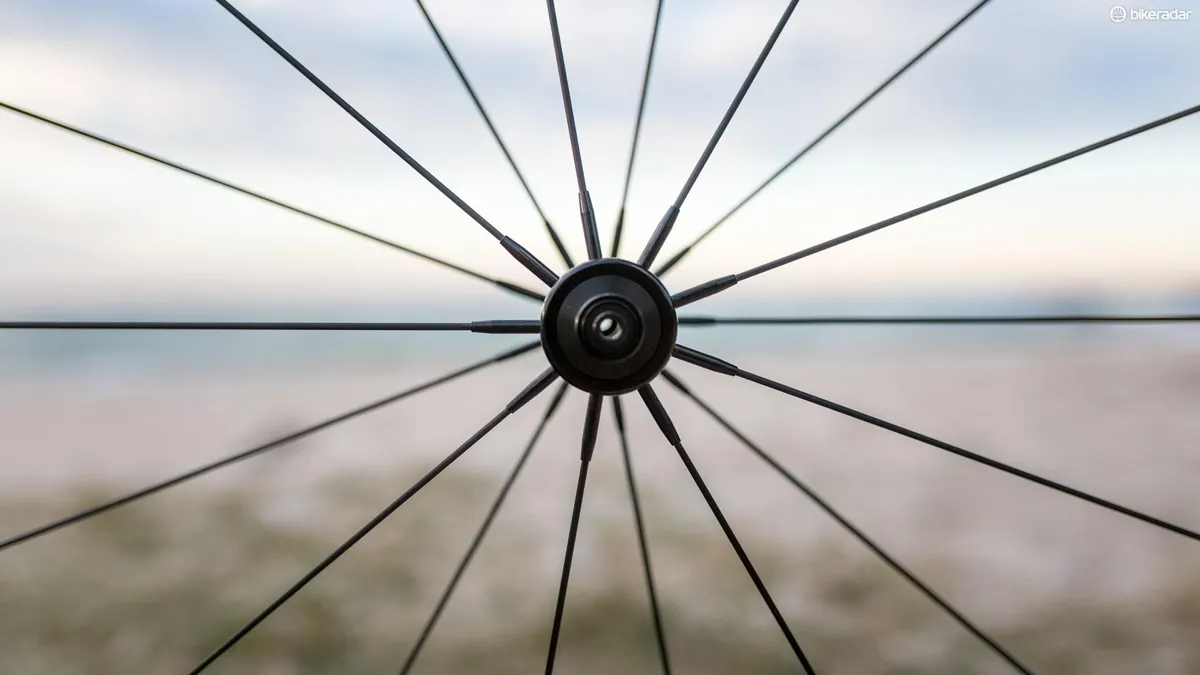
According to Paton, the Carbon Matrix Spokes are also pretty strong. He said the spokes are rated to take a tensile load of 250kg, but that quite a few spokes tested achieved well over 300kg. Standard steel spokes are usually tesnsioned between 100 and 110kg in a built wheel.
This has allowed Tuff to string the Exo clinchers with 18 spokes on the front wheel and 21 at the back, further reducing weight, while also claiming to maintain a stiff, robust wheel. That said, they do also come with a 100kg rider max weight.
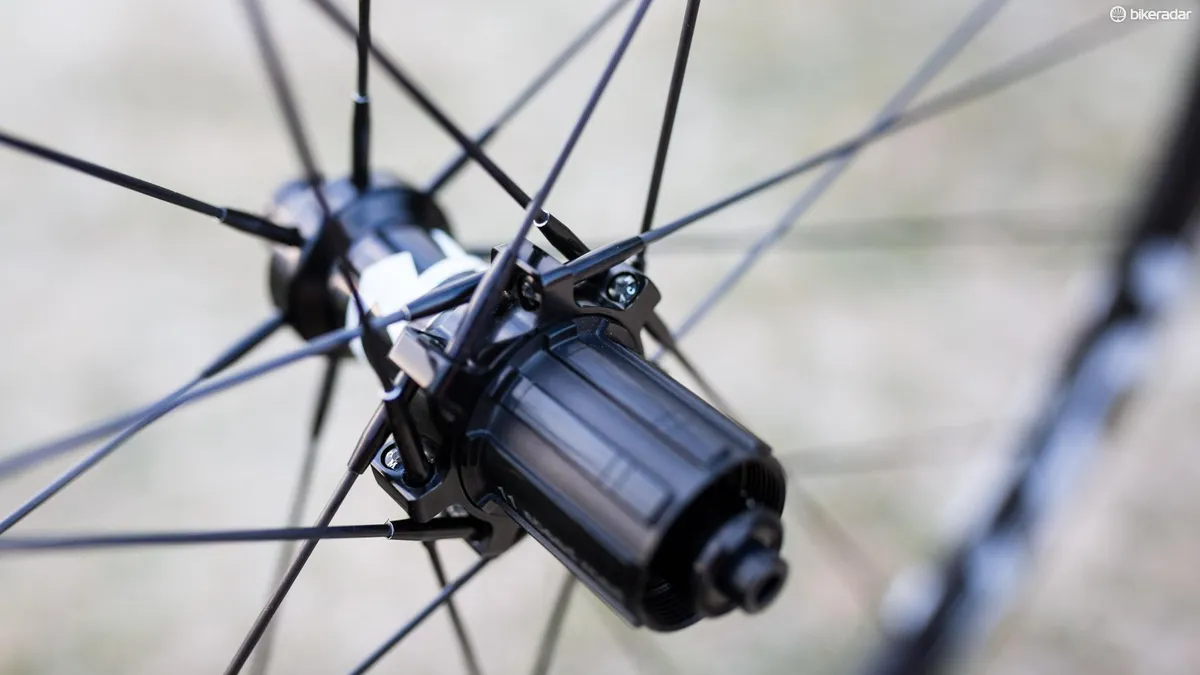
Given the unique nature of these spokes, instead of a standard straight-pull head, they require a proprietary connection to a proprietary hub, as well as non-standard 6mm external nipples — replacements are available on request.
We're also a bit uneasy about seeing carbon spokes on the drive side of the rear wheel. Carbon is generally more fragile than steel, and the chain does pose a potentially expensive threat to spokes on that side.
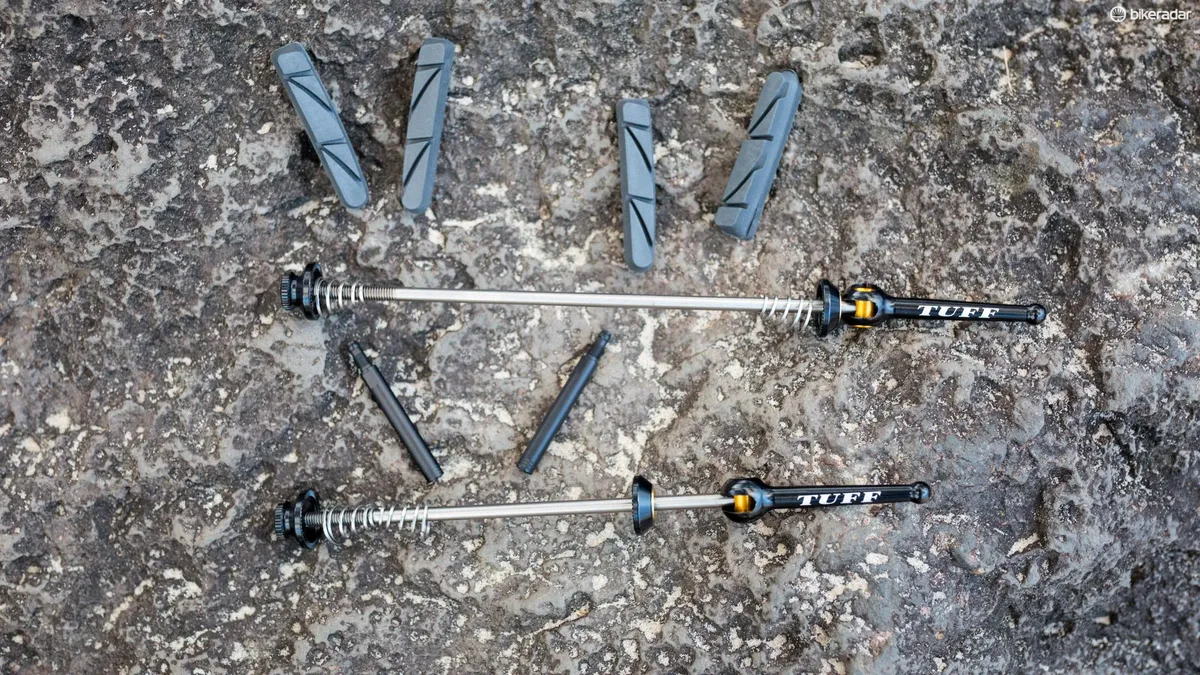
Each wheelset is hand built to order, and so the rims finish and decal colours can be customised, and come with a three-year warranty.
We'll be putting these through the paces over the next few months – keep an eye out for the full review.
